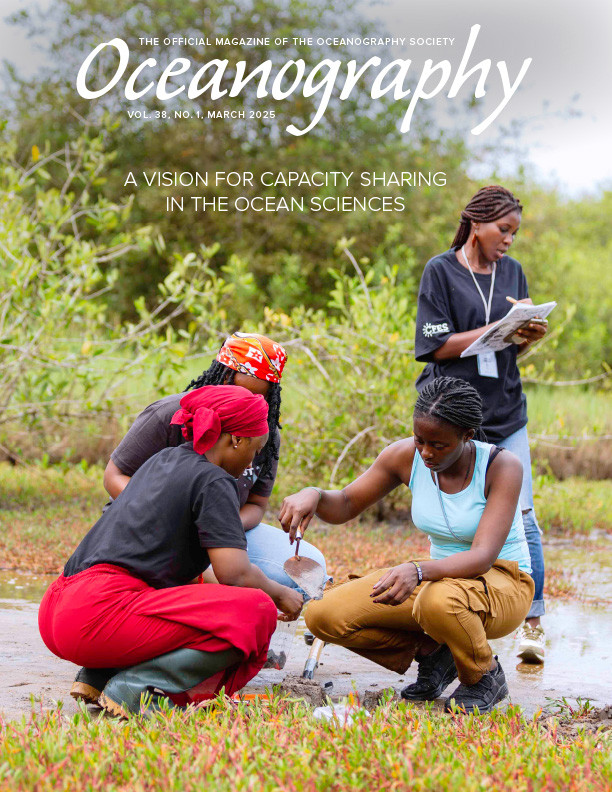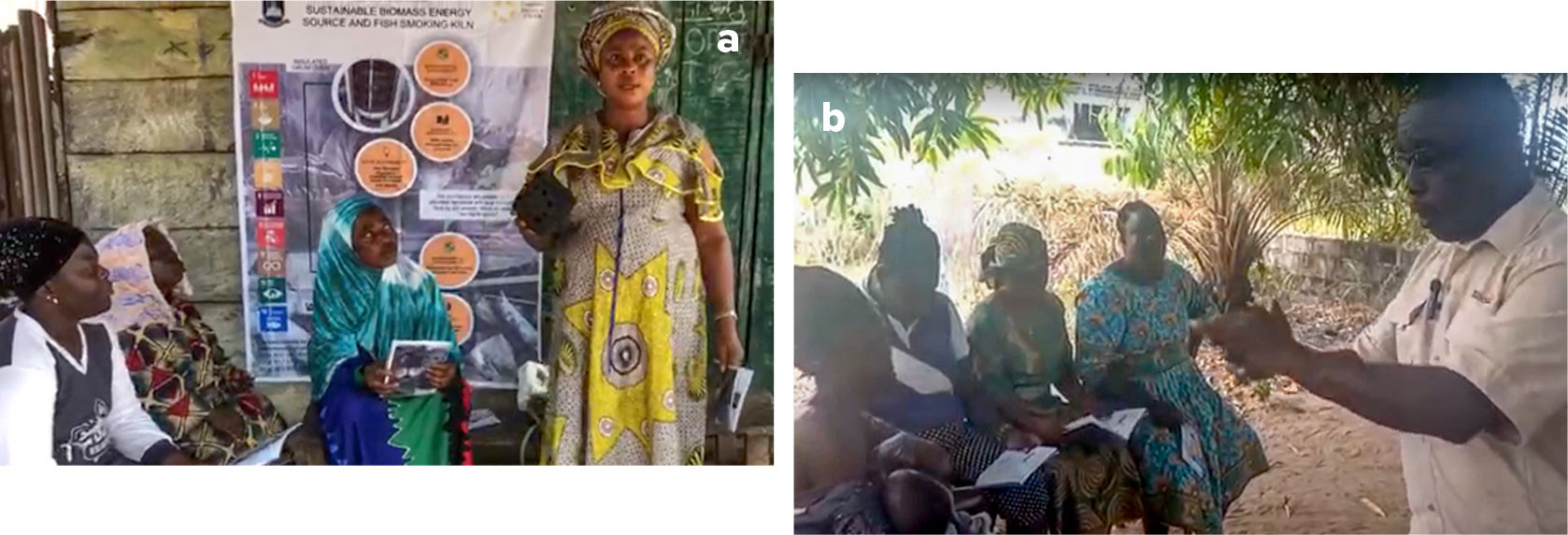Full Text
Introduction
Marine and fisheries research play a crucial role in addressing complex challenges related to sustainable resource management, climate change, and ecosystem health. To tackle these multifaceted issues, researchers increasingly recognize the need for inter- and transdisciplinary approaches that integrate diverse perspectives from scientific disciplines and knowledge systems (Nyboer et al., 2023).
Fisheries, especially small-scale fisheries (SSF), are highly complex social-ecological systems characterized by interactions between ecological processes, human behavior, and institutional dynamics. Problems faced by these systems include overfishing, habitat degradation, and climate-induced shifts in fish populations (Free et al., 2019). Addressing these challenges requires collaborative efforts that transcend disciplinary boundaries and engage stakeholders across sectors and communities.
In recent years, there have been concerted efforts toward sustainable fisheries management in sub-Saharan Africa (Muringai et al., 2022). The region’s rapid urbanization and industrialization have exacerbated pressures on marine and coastal resources, necessitating innovative and inclusive management strategies. Although scientific methodologies have been dominant in marine and fisheries research, supplanting traditional techniques and practices, the latter continue to have significant importance among local communities.
Despite the growing recognition that inter- and transdisciplinary approaches are required to address sustainable resource management, climate change, and ecosystem health, several barriers persist. Research institutions often favor traditional disciplinary silos, hindering collaboration. However, the collaborative nature of transdisciplinary research requires a strong commitment to interdisciplinary training, good communication, and stakeholder engagement. Institutions must recognize and value investments in skill-building programs for human capacity development as critical to long-term project implementation. Although there is limited integration of fisheries sciences and socioeconomic methodologies, there are opportunities to improve capacity building and sharing in marine and fisheries research institutions.
Participatory action research (PAR) is a crucial method for integrating local knowledge with scientific research. PAR fosters collaboration between researchers and community members, producing actionable insights to enhance SSF and improve livelihoods. Here we showcase a PAR project designed to improve fish smokers’ perceptions and practices by introducing biomass briquettes and a drum-smoking kiln. We highlight the significance of a multi-stakeholder approach to enhance capacity sharing of state and non-state actors in the implementation of the Voluntary Guidelines for Securing Sustainable Small-Scale Fisheries (VGSSF; https://www.fao.org/voluntary-guidelines-small-scale-fisheries/en) and share a study on livelihood strategies of women fisherfolk that highlights a local informal financing mechanism as a potential financial inclusion policy intervention.
Case Study 1
Between July and November 2022 in Lagos, Nigeria, a Gendered Design in STEAM research project (https://carleton.ca/gendesignsteam/) involved fish smokers from coastal fishing communities in a training workshop on alternate fuels and in a participatory evaluation workshop of a prototype fish drum smoking kiln (GAF, 2023). Preceding these workshops, a baseline survey of 412 fish smokers across 22 fishing communities revealed low adoption of modern fish smoking technologies and charcoal primarily due to local women fish smokers’ cultural beliefs and socioeconomic and psychological factors.
Given the survey results, the project harnessed local knowledge to develop and implement gender-responsive technology to overcome barriers to uptake of modern technologies and encourage eco-friendly and health-promoting practices. The project was jointly implemented by researchers, a local technology producer, and fish smokers. The two-day training workshop engaged 14 participants in the use of carbonized biomass briquettes as fuels, resulting in better ratings for briquette-smoked fish compared to charcoal and firewood-smoked fish. Participants conducted step-down training in their communities and became advocates for briquette biomass and hygienic fish processing practices (Fakoya et al., 2023a, 2023b; Figure 1).
|
|
The participatory evaluation workshop involved six fish smokers (a subset of the initial 14) who co-produced a prototype fish smoking drum with a local technology producer. Experimenting with new technologies showed potential positive impacts on productivity and attitudes toward work as well as reduction of occupational hazards, time wastage, and tedium. Two key takeaways from the workshops were the benefits of direct involvement of fish smokers as co-researchers and their willingness to adopt technologies that bear close similarity to cultural practices and that can improve gendered dimensions of time, income, labor, and assets.
Case Study 2
The VGSSF implementation workshop held at Lagos State University, Nigeria, in May 2022, funded by the Food and Agricultural Organization (FAO), the International Collective in Support of Fish Workers (ICSF), and WorldFish created awareness of, and sensitized the stakeholders in the SSF sector to, the provisions and importance of implementing the VGSSF (FAO, 2022). The project aimed to enhance the human-rights-based approach of SSF actors; educate them on human rights standards; build advocacy for bottom-up, inclusive, and equitable participation in fisheries governance and decision-making processes to influence national policies for SSF; and create a draft policy document on SSF. Tanzanian and Sri Lankan experiences at the workshop provided valuable insights into stakeholder awareness and engagement, challenges, and collaboration for inclusive policymaking and national action plan implementation.
The workshop involved 30 stakeholders from various sectors, including fish processors, youth fishers, NGO staff, media personnel, government and FAO officials, fisherwomen, academic researchers, and others. They formed two technical working groups, where discussions of sections of the VGSSF covered gender and equality, social development, governance tenure, and resource management, among other topics. The groups then produced a communique that identifies the challenges, benefits, pathways, and actions associated with implementing the VGSSF in Nigeria and provides recommendations. The collaborative nature of the workshop exemplified the transition toward an inter- and transdisciplinary approach. Nigeria had endorsed the VGSSF as a member state of the FAO Committee on Fisheries (COFI) in June 2014, and in 2018, the Minister for Agricultural and Rural Develop signed the VGSSF.
Case Study 3
In March 2019, in a study funded by the Deutscher Akademischer Austausch Dienst, the challenges of women fisherfolk in Makoko, a coastal community often described as the world’s largest “floating slum” in Lagos, Nigeria, were assessed through a mixed methods approach based on a survey of 100 women along with the lived experiences of three women with different levels of capital investments in fish businesses. The resilience of the women in successfully sustaining their fish businesses was amazing despite their lack of formal education, limited access to information, and absence of institutional financial support. Many women found succor in sourcing alternative financial resources for their fishing businesses from the local Alajo savings groups. These institutions manage informal savings and lending opportunities; they provide flexible options for depositing funds and accessing loans throughout the year. Furthermore, parallel informal and traditional credit and savings institutions were explored, for example, Esusu1 in Nigeria, in other African countries such as Ghana, among Afro-Caribbean descendants in North America, and in some Asian countries (Oloko et al., 2022).
1 Esusu are traditional saving groups that provide credit for agricultural activities in regions lacking formal financial institutions, with members contributing fixed amounts and receiving the accumulated sum on a rotational basis.
Results and Lessons Learned
The three case studies exemplify the importance of transdisciplinary approaches. The project on participatory processes involving fish smokers and researchers working together through hands-on training and continuous engagement proved very effective. Additionally, it demonstrated the benefits of incorporating indigenous knowledge and practices in scientific research. The VGSSF workshop emphasized the need to enhance individual and group capacities in order to actively engage in implementation activities through national and continental platforms. The emphasis on stakeholder awareness and collaborative initiatives highlights the significance of inclusive, cross-disciplinary approaches to enhance capacity sharing. The Makoko study clearly demonstrated that personal stories are essential for understanding the significance of Alajo saving groups, social capital, and social networks, in this case, the stories of three women. These factors are crucial entry points for robust policy advocacy that can drive impactful development interventions and ensure that underserved communities achieve full financial inclusion.
Conclusions
The involvement of end-users as co-researchers in research projects is imperative. Their participation is critical for co-creating new knowledge and finding effective solutions. This approach empowers vulnerable and marginalized stakeholders, namely fishers and fish workers, to advocate for themselves, organize within their communities, and assert their agency. Furthermore, it drives the sustainable development of small-scale fisheries, especially in sub-Saharan Africa.


